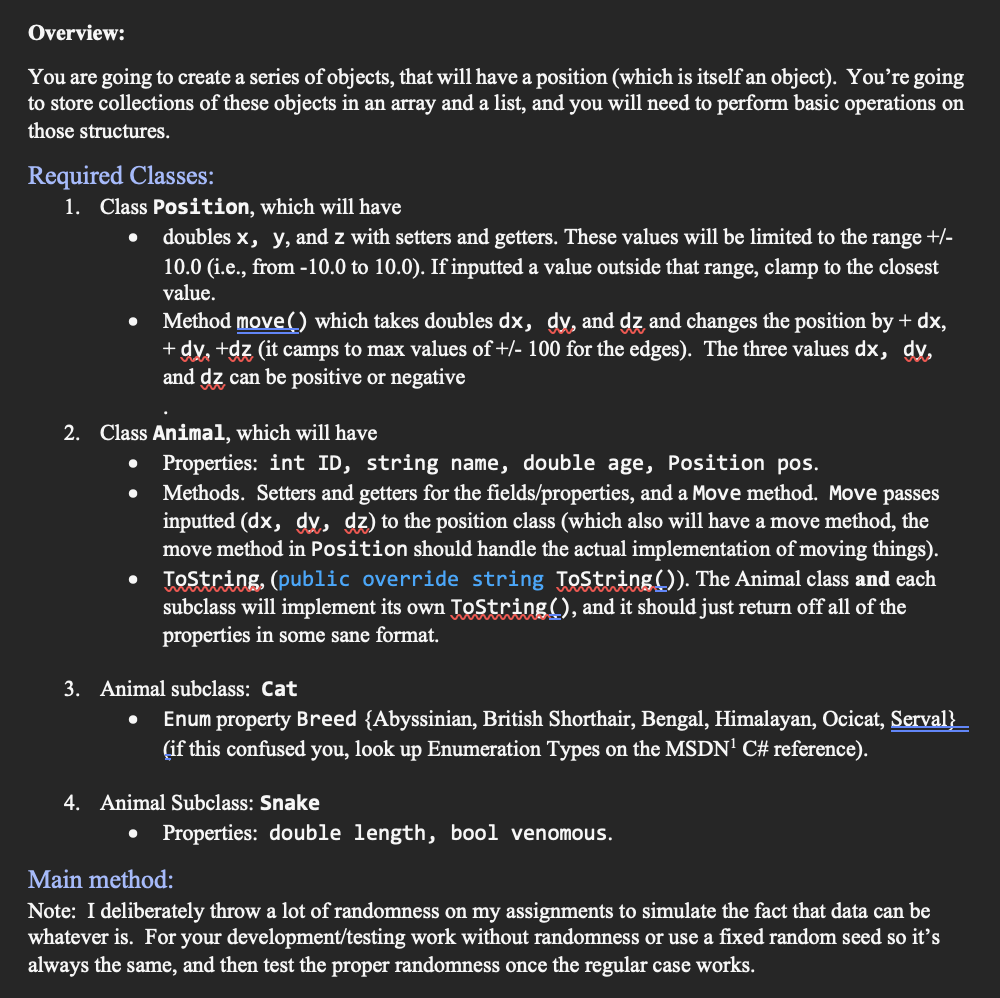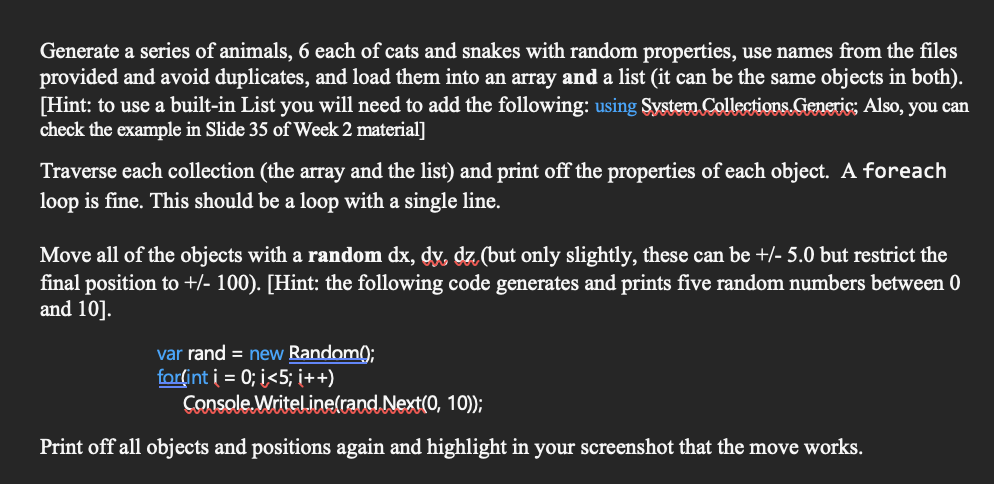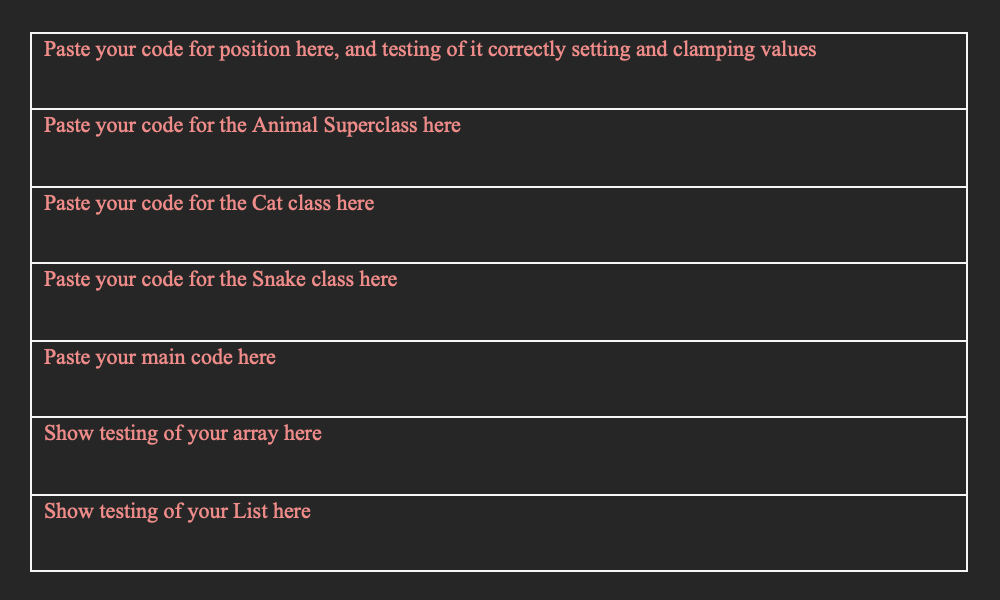Show the outputs and the source code according to the question and format it properly.



to store collections of these objects in an array and a list, and you will need to perform basic operations on those structures. Required Classes: 1. Class Position, which will have - doubles x,y, and z with setters and getters. These values will be limited to the range +/ 10.0 (i.e., from 10.0 to 10.0 ). If inputted a value outside that range, clamp to the closest value. - Method move() which takes doubles dx, dx, and dz and changes the position by +dx, +dy+dz (it camps to max values of +/100 for the edges). The three values dx, dy, and dz can be positive or negative 2. Class Animal, which will have - Properties: int ID, string name, double age, Position pos. - Methods. Setters and getters for the fields/properties, and a Move method. Move passes inputted (dx, dy,dz ) to the position class (which also will have a move method, the move method in Position should handle the actual implementation of moving things). - Tostring, (public override string ToString())). The Animal class and each subclass will implement its own ToString(), and it should just return off all of the properties in some sane format. 3. Animal subclass: Cat - Enum property Breed \{Abyssinian, British Shorthair, Bengal, Himalayan, Ocicat, Serval\} (if this confused you, look up Enumeration Types on the MSDN1CAreference). 4. Animal Subclass: Snake - Properties: double length, bool venomous. Main method: Note: I deliberately throw a lot of randomness on my assignments to simulate the fact that data can be whatever is. For your development/testing work without randomness or use a fixed random seed so it's always the same, and then test the proper randomness once the regular case works. Generate a series of animals, 6 each of cats and snakes with random properties, use names from the files provided and avoid duplicates, and load them into an array and a list (it can be the same objects in both). [Hint: to use a built-in List you will need to add the following: using System Collections.Generic; Also, you can check the example in Slide 35 of Week 2 material] Traverse each collection (the array and the list) and print off the properties of each object. A foreach loop is fine. This should be a loop with a single line. Move all of the objects with a random dx,dv, dza (but only slightly, these can be +/5.0 but restrict the final position to +/100 ). [Hint: the following code generates and prints five random numbers between 0 and 10]. varrand=newRandom);forrinti=0;i









